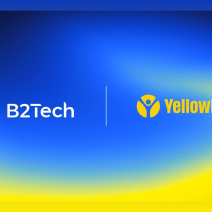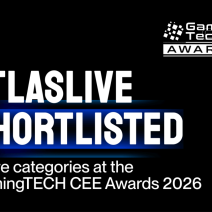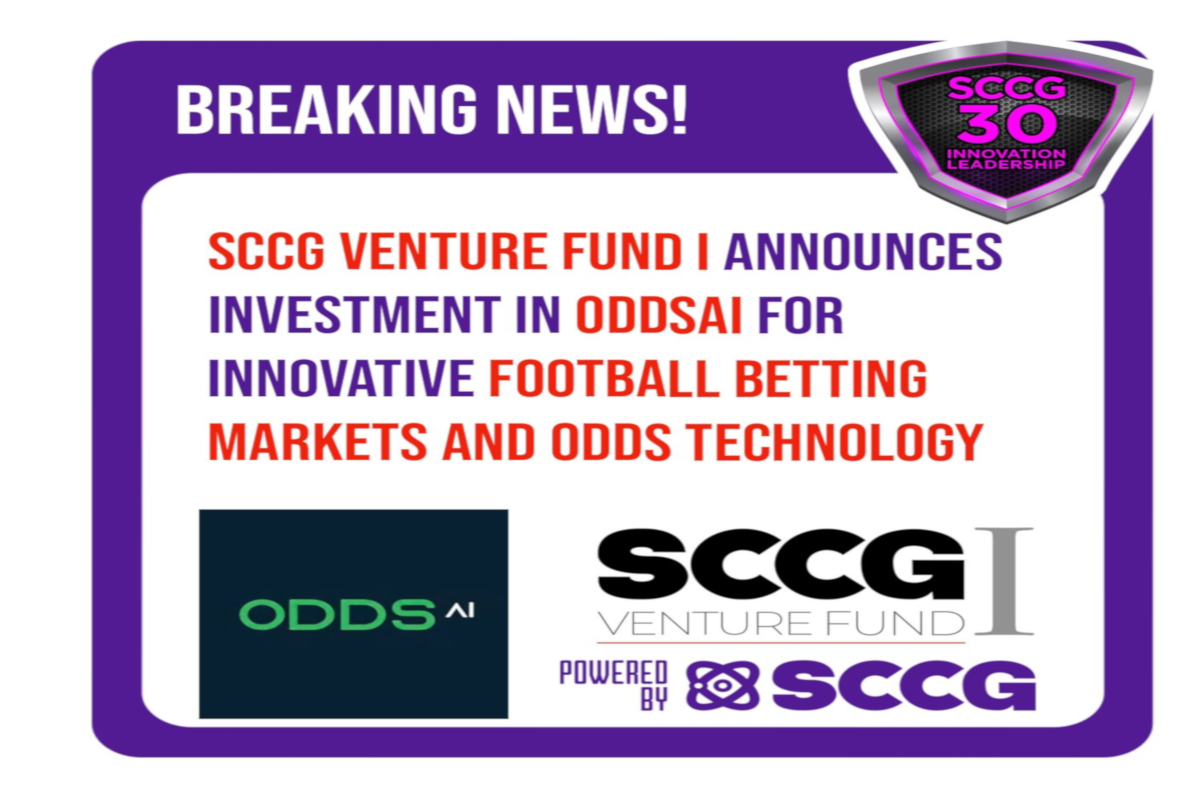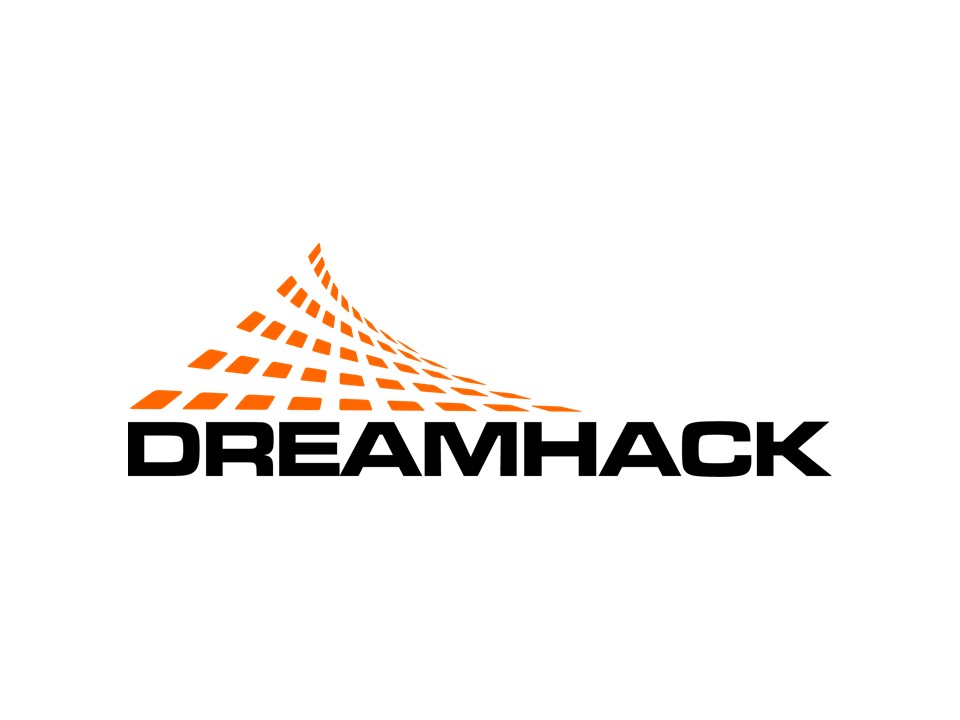
Roundtable: Spending Smart Not Big in the US
Participants
Michael Pedersen, CCO of Livespins
Tom Galanis, Founder at First Look Games
Allan Petrilli, VP of Sales & Growth at Intelitics
Troy Paul, Co-Founder and CEO at SGG
Summary
This roundtable will discuss the marketing tactics being deployed by operators in the US and in particular, how those with smaller budgets can still drive awareness and build market share. While above-the-line campaigns have their place, affiliates and paid media are just as effective and can drive acquisition at scale but for a more sensible return on investment. It will dig into the upsides that affiliates and paid media offer and what operators need to do to maximise the opportunities they provide. It will also touch on other channels such as social media and streaming and asks if operators are really doing enough when it comes to retention.
Operators have dropped serious money on marketing and acquisition campaigns to date, but many are now questioning the effectiveness of these and the ROI they are generating. Why do you think they took this approach in the first place?
Michael Pedersen, CCO of Livespins
Operators have spent big to leverage the powerful first mover advantage on the table in states that have legalised online sports betting and casino for the first time. They have also been locked in a fierce battle with their rivals over market share, a battle they have been keen to win. Many will have researched the market beforehand and seen analyst reports that it will be worth billions and so have looked to buy their way to the largest slice of the pie. I think this has been the right approach to take for some as there is a huge advantage to be gained by being among the first brands to go live in a state. This allows the operator to capture the significant early interest in legal sports betting and casino when the market first opens. You just have to look at the numbers coming out of Ohio to see the level of activity that occurs in the first few days and weeks of a market opening.
Of course, this is an expensive game to play and requires very deep pockets indeed. The issue now is that operators have been spending big for quite some time and investors are starting to question when this open chequebook approach will pay off. Many understand that brand building takes time, but they do need to see a path to profitability. This path is looking increasingly bumpy in the context of recent changes to the macro environment (interest rates on the rise, cost of living crisis, etc) and it seems investors are running out of patience. This has seen many operators slash marketing spend as part of wider efforts to hit the point of break-even by the end of the year – a target that I’m sure some will fail to hit.
Tom Galanis, Founder at First Look Games
The trend for massive spend is undoubtedly a result of the historic marketing blitz undertaken by FanDuel and DraftKings and the hundreds of millions of dollars they invested in building their brands in the daily fantasy sports space. They’ve been able to tap into this brand equity as and when states have legalised online sports betting and casino, taking the lead in most markets. Other brands entering the fray have had to spend at similar levels to play catch-up and stake their claim to the lion’s share in each state. I do think there’s been an over-reliance on above-the-line (ATL) marketing and the use of brand ambassadors and sponsorship deals. These are incredibly expensive marketing channels that are often more effective at long-term brand building than they are at delivering acquisition at pace. It’s also worth noting the “Gold Rush” mentality that a lot of operators seem to have adopted – they believed there was a limited window to achieve a critical mass of market share so have spent big in order to achieve it.
Allan Petrilli, VP of Sales & Growth at Intelitics
While many believe operators have embarked on reckless spending, to me there is some method to the madness. Top-tier brands consider this spend under brand-building and with new markets opening up so quickly, they felt they were entering into a fierce battle with their rivals to capture the largest share of wallet in each state. This coincided with public and private investment being relatively cheap, meaning operators didn’t have to be quite so mindful of the return they were achieving. There was also an assumption that iGaming/online casino regulation would be quickly rolled out across additional states, and this in turn would help to drive revenues. Of course, the cost of investment and borrowing money has skyrocketed and online casino regulation has not come about at the pace or the scale expected. This has caught operators off-guard, and many are now slashing marketing budgets in order to achieve profitability.
Troy Paul, Co-Founder and CEO at SGG
The passing of PASPA (The Professional and Amateur Sports Protection Act) really heralded the start of “the great sports betting race” – and back then, the general consensus was that the first two or three operators would easily “win” and dominate sports betting for all time. Initially, FanDuel, DraftKings and BetMGM outspent the competition and took the first heat, but the race is far from over. Now we’re seeing challengers such as Fanatics and BETR competing in a new heat where the emphasis has shifted from how much a sportsbook spends to how effective their spend proves to be.
Is there an opportunity for operators to spend smart and still drive brand awareness and claim a significant share of the market in each state they target?
Michael Pedersen, CCO of Livespins
Operators are starting to be more conservative. In New York, the likes of WynnBet have put the brakes on entering the market over concerns about the high tax rate impacting its ability to be profitable in the state. Not all opportunities are good opportunities and operators must avoid jumping on the bandwagon just because a state is hailed as a game-changer by analysts and insiders. Aggressive ambition is good, but operators must not walk into markets blind.
In the states that operators do identify as being viable, spending big is not the only way to claim market share and push for customer acquisition at scale. A product such as Livespins can be a major driver of both acquisition and retention. While the core Livespins experience sits within the casino lobby and provides players with an entirely new wagering experience that sees them bet behind their favourite streamers, taking retention to the next level, our soon-to-launch ambassador product has been designed to super-charge customer acquisition.
It allows operators to maximise the value of the brand ambassador/celebrity/influencer partnerships they have by deploying them within the Livespins experience. This means that players can join their favourite celebrities during their streams and play with them via our innovative bet behind system. Not only that, but they can chat with them and other players throughout the broadcast, while also dropping reactions and emojis. This changes brand ambassador marketing from passive to active and allows operators to monetise directly and instantly through the bet behinds being placed.
Tom Galanis, Founder at First Look Games
Absolutely. There’s a huge opportunity for operators to generate significant new player sign-ups through performance marketing and affiliates. Operators have seemed hesitant to go all-in with affiliates to date, but as they are forced to cut marketing spend in their pursuit of profitability, I think we’ll see more turn to performance marketers to support their customer acquisition efforts. That said, given the traction that the power players such as DraftKings, FanDuel and BetMGM already have in most states, affiliate marketing alone will not be enough to push another brand into this top tier – significant ATL marketing will still be required for those looking to take the crown from the early market leaders.
Allan Petrilli, VP of Sales & Growth at Intelitics
With this downward pressure on spend and the increasing importance being placed on efficiency and ROI, now is the time for operators to be more data-driven in their marketing activity. With many brands slamming the brakes on their above-the-line campaigns, there is a window of tremendous opportunity for savvy operators to explore and take advantage of. Affiliates and paid media have been under-utilised in the US market to date but absolutely can deliver the results operators desire and generate the ROI they are seeking. Of course, with most operators pulling back on top-line marketing spend and looking for alternative acquisition tactics and channels, competition across affiliates and paid media will heat up and perhaps reach the same scorching intensity that we have seen with above-the-line marketing.
To get ahead of the competition, operators should focus on localised marketing for the purpose of brand building. The top five operators will always have big budgets and will take a national approach to most of their acquisition activity, but this opens up an entire area of local marketing for smaller brands to explore and carve out their own significant niche. This is why it’s important for brands to be self-aware and for this to be reflected in their marketing strategies and activity.
Troy Paul, Co-Founder and CEO at SGG
Yes, but in order to do so there are certain key propositions they must deliver. First and foremost, their product has to be top-notch and they must be able to offer a state-of-the-art gambling portal. Secondly, as the market has become more saturated, differentiation and offering a unique betting proposition has become increasingly important. BETR’s micro in-game betting feature is a good example of this and one that definitely sets them apart from the competition. Lastly, if you’re going to take on the big boys, you’re going to need to have your own unique advertising channel. As they can’t be beat on TV or Ad Word spending, you have to be smart and find other ways to reach bettors.
What does smart marketing look like?
Michael Pedersen, CCO of Livespins
A clear strategy should be the foundation of any marketing activity. It’s vital for operators to know their audiences and where their attention can be found. They must also identify their own strengths and weaknesses, playing up to the former and working with specialists to close any gaps with the latter. Knowing how deep the company’s pockets really are, and the degree of appetite for significant, long-term investment in marketing, is key as it sets the budgets that marketing teams have to play with. Operators and their marketing teams must then use their expertise and experience to come up with a plan that resonates with their target audience, conveys their brand values and USPs, and ultimately drives players to their books and casinos within the budgets they have been allocated. And platforms such as Livespins can deliver incredible results without operators blowing billions of dollars on TV ad campaigns.
Tom Galanis, Founder at First Look Games
It really depends on the ultimate ambition of the brand. If the aim is to scale fast and gain significant market share without any consideration being given to the bottom line, then DraftKings, FanDuel and BetMGM have done a great job. Whether this approach is sustainable remains to be seen, and you also have to factor in the levels of retention these brands are achieving to really determine the success of their tactics. Smaller operators that have looked to emulate these titans have suffered massively and this has ultimately been to the benefit of the big three. That said, it’s encouraging to see some new market entrants such as PlayStar taking a different approach – they are doing things their own way with performance marketing as a key channel for customer acquisition.
The US is a very different market to the UK, but operators in the former should look to the latter to see what does and doesn’t work. New York shows that operators are not learning fast enough – when margins are squeezed (in this case because of the high tax rate) agility with both product and marketing is crucial to ensuring market viability. When it comes down to it, smart marketing is a strategy that is both sustainable for the long term and balances achieving a critical mass of customers with a clear pathway to profitability.
Allan Petrilli, VP of Sales & Growth at Intelitics
An ambitious but achievable plan is the foundation of all smart marketing activity. Plans need to cover each channel, and operators need to ensure their marketing teams have access to the technology they need to track, monitor and optimise campaigns. They must also be open to and ready to pounce on any opportunities that open up. Data should be used to drive all decisions, from pulling underperforming campaigns to ramping up the spend being put behind those that are delivering solid results. Data also allows for campaigns to be tweaked in real-time, helping operators to further improve the ROI they generate. It’s also important for operators not to copy the tactics being deployed by their rivals – this is a market where being brave, bold and swimming against the tide yields the greatest results.
Troy Paul, Co-Founder and CEO at SGG
There are many brands marketing effectively in the US, and pretty much all of them have their own unique set-up. Barstool, for example, is a great example of a brand that has successfully harnessed the power of social media. They have a community of loyal followers on multiple channels who relate to their brand, so they’re able to market to an audience of 50 million followers every day. This is a cost-effective solution for attracting younger sports bettors, as this audience is often found dual-screening on their cell phone while watching sports – meaning it’s the easiest way to reach them.
FanDuel and DraftKings, meanwhile, have both created a dedicated podcast following and keep themselves in front of this audience on a weekly basis. This is, of course, something that takes a while to establish, so it’s hard for new competitors to replicate and gives them a distinct edge in the market.
Have operators yet to explore the full potential of affiliates and paid media? If not, why do you think this is the case?
Tom Galanis, Founder at First Look Games
No, they haven’t. I think this is for a couple of reasons. Some operators hold the belief that brands in more established markets are over-reliant on and over-exposed through affiliates. Others seem to think the channel creates a more even playing field for smaller brands to gain market share and that affiliates do not offer the scale and speed of scale they require. There also seems to be a high level of mistrust and misunderstanding when it comes to affiliates.
Allan Petrilli, VP of Sales & Growth at Intelitics
This is a bit of a loaded question. There are definitely some that are focusing more on affiliates and paid media, but broadly speaking they have not been fully explored to date. This is likely because these channels require experience, expertise and proper set-up in order to be successful. But given the scrutiny that current marketing activity is coming under, brands are increasingly leaning into both as they look to find efficiencies while scaling traffic. As these tend to be more supportive channels, I expect to see the percentage of overall marketing spend shift in a meaningful way towards affiliates and paid media over the next 12 months.
Troy Paul, Co-Founder and CEO at SGG
Social media remains a largely untapped channel and is – in our opinion – the future of attracting the next generation of sports and casino players. That said, in the past some of the more old-school operators haven’t been particularly quick to embrace it. The reason for this might be that they didn’t possess the skills or know-how to communicate with this customer demographic effectively. Affiliates can help in this respect as they often have niche audiences that operators aren’t able to reach by themselves, such as social media groups or college sports fans. This can help them connect with customers outside of their traditional target audience and greatly increase their acquisition potential.
What upsides do affiliates offer? How can operators maximise the opportunity here?
Tom Galanis, Founder at First Look Games
A solid affiliate program provides the foundation for operators to grow their player base sustainably and cost-effectively. Affiliates essentially act as brand and product advocates, promoting those brands that deliver the best player experience and holding those that don’t to account. This ultimately helps to raise standards while driving significant, quality traffic to those at the top of their game. Most affiliates are also willing to work with operators to help them achieve their goals – those that are properly incentivised will be willing to work to lower CPAs which are incredibly high in the US compared to more mature markets such as the UK.
Allan Petrilli, VP of Sales & Growth at Intelitics
Most affiliates are specialists when it comes to digital marketing and user acquisition. They have sizable audiences or know how to acquire them, that are primed and ready to sign up to and play at online sportsbooks and casinos, so long as those brands offer what they are looking for. Affiliates require little to no set-up costs with operators paying for what they get in terms of depositing customers. They can also provide operators with highly valuable feedback on their conversion flows, products and more – this feedback is incredibly hard to come by and can help operators improve the player experience offered, which in turn boosts acquisition but also retention.
And the same for paid media – what is the potential here and how can operators unlock it?
Tom Galanis, Founder at First Look Games
Affiliates are currently dominating the paid media space in the US market because, compared to other markets, there is a much higher margin to be made. But this means there is room for operators to get in on the action and use paid media to directly acquire customers and achieve a strong ROI. For example, paid media is the ideal vehicle to flex up acquisition during the limited window of the NFL season.
Allan Petrilli, VP of Sales & Growth at Intelitics
Paid media simply refers to placing ads across a wide range of media platforms such as Meta, Google, publisher networks and mobile networks. Campaigns can be highly targeted across location, age, interests and more to ensure they hit the right players. The key to unlocking the full potential of both paid media and affiliates is using a mar-tech platform that provides access to data in real-time. This allows operators to tweak campaigns to improve performance and to ramp up and scale back spending as and when required.
What other, cost-effective channels can operators use for brand building and marketing? What role can streaming play here? What about social media?
Michael Pedersen, CCO of Livespins
Streaming has proved to be a highly effective marketing and acquisition platform for online casino and sportsbook brands, but operators remain cautious, especially following Twitch’s decision last year to ban certain operators from its platform. Livespins allows operators to overcome these concerns – because it sits within the casino lobby, players are afforded the same responsible gambling and safe gaming tools when playing traditional casino and sports, as required under an operator’s respective local licences. This means they can tap into the huge – and growing – potential that streaming offers both in terms of acquisition and retention while being confident that they are fully compliant at all times.
Tom Galinis, Founder at First Look Games
I’m coming around to the idea that offline activation is an underutilised channel. We’re seeing affiliates like Betting Hero and Affiliated Sports Fans gaining traction here, and operators should look to follow their lead. In terms of social media, paid social is the play for sure and in terms of building up an audience, I’d be looking to focus efforts on TikTok. The price of content generation is extortionate in the US, so I fully expect AI-generated content to come to the fore as the technology becomes more sophisticated – we’re already seeing leading affiliates and some operators using it.
Allan Petrilli, VP of Sales & Growth at Intelitics
In terms of live acquisition, we will see more out-of-home campaigns and activity. It is being done by some brands at the moment, but there is so much more potential to unlock here and especially at the local level.
Troy Paul, Co-Founder and CEO at SGG
According to the most recent statistics, an estimated 75% of marketers will use Influencer Marketing in 2023, with this representing a $17.4 billion industry. Most operators are way behind in terms of tapping into this lucrative space, which is arguably the most cost-effective way of advertising to the younger generation of sports fan. In particular, micro-influencers are more engaged with their sports followers and can be utilized at a fraction of the cost of a “Tom Brady” or similar superstar influencer.
Retention is just as important as acquisition, but are operators paying enough attention to this? If not, why is that the case?
Michael Pedersen, CCO of Livespins
I disagree – retention is even more important than acquisition. Onboarding new players is just the first hurdle that operators must clear – then the real hard work begins. That’s why before spending a single dollar on acquisition, they must spend $10 on ways to retain those players. If operators are not confident about retaining players, they should not spend anything on marketing to them. If they are confident, then they can launch acquisition campaigns and scale up those that are working well. I really can’t stress the importance of CRM and ensuring that players continue to wager with the brand once they have signed up for the first time. This is especially important in the US where the cost of acquisition is sky-high right now.
Tom Galinis, Founder at First Look Games
No, they’re not. I’d say this is partly down to a lack of product capability to really be able to deliver organic retention, but I also think there’s a firmly held belief that the activation of another local league or team sponsorship will do more than sophisticated CRM systems ever could. But operators are wrong to believe this.
Allan Petrilli, VP of Sales & Growth at Intelitics
I think they are starting to, but the future here is around personalisation. With advances in technology, the brands that use this to offer a truly bespoke player experience will be the ones that ultimately win. What does this look like? If I bet on the New York Jets each weekend, I should be able to log in to my sportsbook app and have a prefilled bet sheet each week ready and waiting to go. This is just one example, and the sky really is the limit here.
Troy Paul, Co-Founder and CEO at SGG
Having a great gambling platform is obviously a major prerequisite for successful retention, as is finding a way to engage with your players on a daily or weekly basis, such as a podcast or social media channel. In order to keep your product front and center in customers’ minds, you have to go where their eyes go as they’re watching games – and these days, that’s increasingly their cell phone screens.
How can operators turbo-charge their retention efforts and activity?
Michael Pedersen, CCO of Livespins
It comes down to delivering a seamless player experience beyond that being offered by rival brands. This covers all areas of the book or casino, from the welcome offer to onboarding, KYC, payments and customer support. Of course, the gaming experience offered is crucial and that’s why products such as Livespins are a must for operators. The Livespins experience offers an entirely new way for players to experience online casino, while being interactive and social. Session times are off the charts, and this in turn is helping operators mitigate churn and keep their players playing for longer. It also acts as a huge point of difference, adding more kudos to its ability to help keep their players coming back for more.
Tom Galinis, Founder at First Look Games
Simple. Build the best product which means not relying on the relatively poor player management systems that currently underpin the US market. This is where I feel bet365 can gain market share. Yes, they’ll have to invest in ATL, but I fully expect them to get their product successfully localised and become the best product on the market. This will ultimately act as the foundation of retention at scale.










